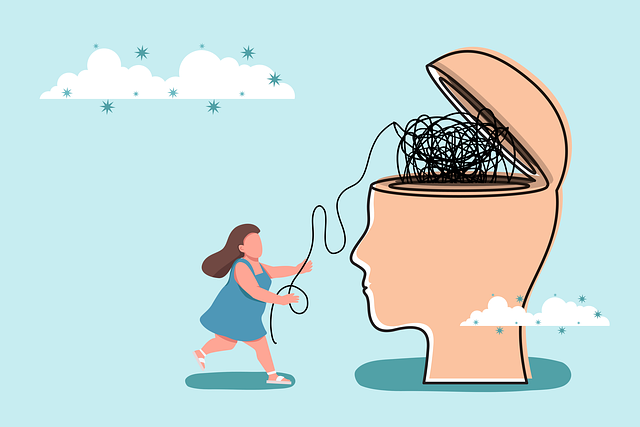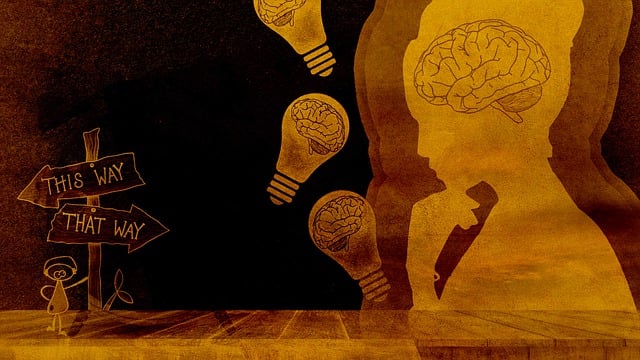Media representation of mental health conditions like Superior Oppositional Defiance Disorder (SODD) significantly impacts public perception, either perpetuating stigma or offering valuable insights. Current depictions often oversimplify SODD, misrepresenting it as a character trait rather than a complex medical condition requiring therapy and support. To improve mental health discourse, media should focus on accurate representations by integrating recovery stories, resilience, and evidence-based practices like mindfulness meditation into narratives. Realistic portrayals can foster empathy, reduce stigma, and encourage access to trauma support services for individuals affected by SODD.
In today’s media landscape, accurate representation of mental health conditions is crucial. This article explores the challenge of depicting mental illness, focusing on Superior Oppositional Defiance Disorder (SODD). We delve into the harmful effects of stigmatization and stereotypes, emphasizing the need for empathic portrayals. Additionally, it provides strategies for responsible SODD therapy representation in media, offering a roadmap towards more nuanced and impactful storytelling. Understanding these dynamics is essential for fostering mental health awareness and promoting effective support systems.
- Understanding Mental Illness Representation in Media
- The Impact of Stigmatization and Stereotypes
- Promoting Accurate and Empathic Portrayals
- Strategies for Effective Superior Oppositional Defiance Disorder (SODD) Therapy in Media
Understanding Mental Illness Representation in Media

Media plays a significant role in shaping public understanding of mental health issues. However, its representation often falls short, perpetuating stereotypes and misconceptions about conditions like Superior Oppositional Defiance Disorder (SODD). The media’s portrayal of mental illness can either foster stigma or offer valuable insights, making it crucial to analyze and address these depictions. Often, SODD is depicted as a character trait rather than a complex medical condition requiring therapy and support services. This simplification not only misrepresents the experiences of individuals living with SODD but also hinders efforts to encourage those affected to seek appropriate help.
By integrating stories that highlight the journey of recovery, resilience, and inner strength development, media can contribute to improving mental health discourse. Incorporating elements of mindfulness meditation or other evidence-based practices within narratives can further promote understanding and empathy. Recognizing these challenges is a step towards creating a more nuanced and accurate portrayal of mental illness in media, thereby encouraging better access to trauma support services for those who need them.
The Impact of Stigmatization and Stereotypes

The representation of mental illness in media often perpetuates harmful stereotypes and stigma, which can significantly impact how society views those struggling with their mental health. Depictions that focus on dramatic or exaggerated symptoms, such as violent behavior or complete loss of control, contribute to a misinformed public perception. This stigmatization can create barriers for individuals seeking help, as it fosters an environment where they might feel ashamed or afraid to discuss their experiences openly.
Understanding the impact of these negative portrayals is crucial in developing more responsible content. Promoting accurate representations, such as showcasing the diverse range of symptoms and effective treatment options like Superior Oppositional Defiance Disorder Therapy, can challenge these stereotypes. By presenting realistic narratives that emphasize the journey towards recovery and the power of mental wellness through conflict resolution techniques and mind over matter principles, media has the potential to foster empathy and reduce stigma, ultimately encouraging support for those facing mental health challenges.
Promoting Accurate and Empathic Portrayals

Media has a powerful influence on shaping societal perceptions, and accurate representation of mental health conditions is crucial in combating stigma. When depicting individuals with mental illnesses like Superior Oppositional Defiance Disorder (SODD), the focus should be on fostering empathy rather than perpetuating stereotypes. By employing sensitive storytelling techniques, media can showcase the complexities of these disorders while highlighting the potential for recovery through therapy.
Incorporating realistic portrayals of SODD and similar conditions in films, TV shows, or even podcasts can contribute to better understanding. For instance, a mental wellness podcast series production could feature interviews with experts and individuals who have successfully navigated SODD through therapy, emphasizing effective treatment methods and the importance of seeking help. Similarly, stress management workshops organization can benefit from including case studies that demonstrate how mindfulness, cognitive-behavioral therapy, or other evidence-based practices aid in managing symptoms, thereby promoting positive mental wellness among their audience.
Strategies for Effective Superior Oppositional Defiance Disorder (SODD) Therapy in Media

Representing Superior Oppositional Defiance Disorder (SODD) accurately in media is a powerful tool to challenge stereotypes and promote understanding. To achieve effective therapy through media, several strategies can be employed. One key approach involves humanizing characters with SODD by showcasing their complexities and underlying struggles, rather than perpetuating the disorder as purely adversarial. This can foster empathy among viewers, encouraging them to view individuals with SODD as people first, complex beings deserving of compassion.
Additionally, media platforms can contribute to positive change by featuring successful outcomes and recovery stories related to SODD. Highlighting effective therapy methods, such as Cognitive Behavioral Therapy (CBT) or Dialectical Behavior Therapy (DBT), along with the importance of support systems like family and friends, can offer viewers valuable insights into managing this condition. Integrating self-care routine development for better mental health, compassion cultivation practices, and empathy building strategies within these narratives further strengthens the therapeutic impact, contributing to a more nuanced and constructive portrayal of SODD in media.
In conclusion, accurately representing mental health conditions like Superior Oppositional Defiance Disorder (SODD) in media is crucial for challenging stigmatization and promoting empathy. By adopting strategies that emphasize accurate and empathetic portrayals, the media industry can play a significant role in fostering understanding and supporting those affected by mental illness. Recognizing the impact of stereotypes and implementing effective therapy representations are essential steps towards a more inclusive and compassionate narrative in popular culture.














